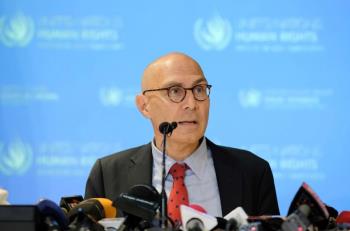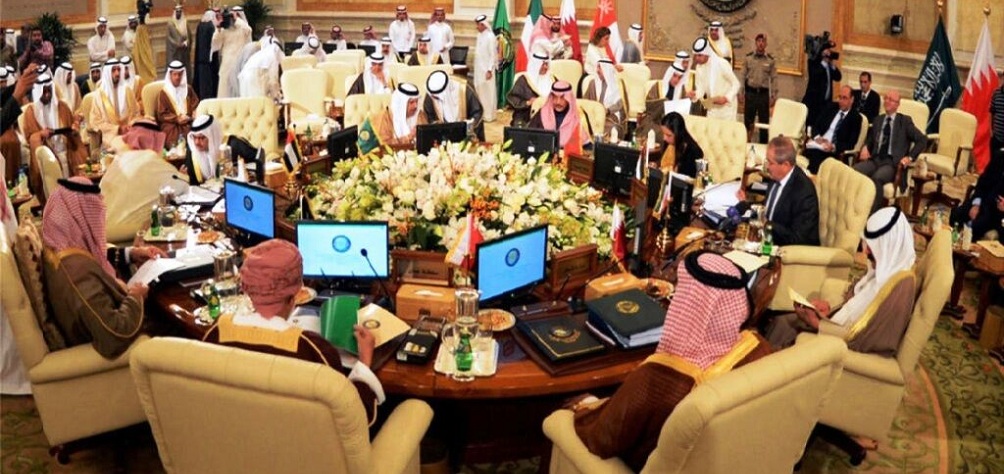Alwaght- The UN annual meetings have always provided a proper opportunity for political officials of countries to hold concise diplomatic meetings in a short time and prepare the ground for development of political and economic relations.
In this relation, before the recent UN General Assembly, unofficial reports had suggested that a possible meeting could be held between Iran and Persian Gulf Arab states with the presence of Iraq to pursue closer ties between Tehran and the Arab monarchies in the shadow of the positive atmosphere caused by March détente agreement between Iran and Saudi Arabia.
The initiative seems to have been proposed by the UN Secretary General Antonio Guterres and was welcomed by Iran. During his visit to Oman in June, Iran’s Foreign Minister Hussein Amir-Abdollahian has mentioned it. Also, during Amir-Abdollahian’s meeting with (Persian) Gulf Cooperation Council chief Jassim al-Budaiwi on the UNGA sidelines, the two emphasized on holding the meeting.
Some media, quoting diplomatic sources, claimed that according to the agreements, this meeting was supposed to be held based on the provisions of Security Council Resolution 598 to establish a regional dialogue forum chaired by the UN secretary-general, but it failed at the last moment because some member countries of the (P)GCC expressed doubts about its objectives and timing. Meanwhile, it seems that the differences between Iraq and Kuwait arising from a dispute over Khor Abdullah agreement is one of the main reasons behind the cancellation of the meeting.
However, the important point about the cancellation is the recent meeting between the US and Arab states and release of a closing statement that went against the agenda and content of the planned meeting with Iran.
While the joint meeting between Iranian FM and his (P)GCC counterparts was looking for ways to boost confidence to advance the process of regional de-escalation and cooperation in all fields and especially to examine Iran’s proposal to form a dialogue and cooperation forum, the final statement with the US once again sowed difference with Iran, showing that the US has had a fundamental role in cancellation of the scheduled meeting with Tehran and composition of the anti-Iranian statement.
In the statement, although the White House pretended to favor peace and welcome the diplomatic contacts of Saudi Arabia and other (P)GCC members with Iran, it interfered in the Iranian nuclear program which is a totally national affair and at the same time backed the UAE claims about three Iranian islands in the Persian Gulf. It also made accusations against Iranian defense policy, including production of conventional weapons.
The US-(P)GCC summit on the sidelines of the UNGA is not new and they have held such summits over years, but certainly Washington has specifically counted on this year’s meeting to highlight the sticking points between Iran and the Arab countries. After all, continuation of the positive atmosphere and de-escalation in the Persian Gulf with realization of Iran’s proposal to found a dialogue and cooperation forum will throw a wrench into decades-long Washington push for massive military presence in the sensitive and strategically important Persian Gulf region and weapons sales through Iranophobia and recently normalization with Israel to keep Arab countries away from drifting to China and Russia.
To regain the lost confidence of the Arab countries and emphasize on continuation of the military presence in the Persian Gulf under the ruse of defending the allies, the US reaffirmed its “commitment to ensuring freedom of navigation and maritime security in the region and their determination to deter illegal actions at sea or elsewhere that might threaten shipping lanes, international trade, and oil installations in the (P)GCC states” and also on working together with Arab states to “deter and address threats to sovereignty and territorial integrity and other destabilizing activities.”
Meanwhile, although there is still an opportunity to reschedule the canceled meeting between Iran and the Persian Gulf bloc and the US plan to spoil this positive regional atmosphere has met its failure amid expression of Arab leaders’ willingness to mend ties with Iran, a dual play by Arab states can certainly hinder taking quick advantages from the current atmosphere for the good of mutual interests of regional states.



























